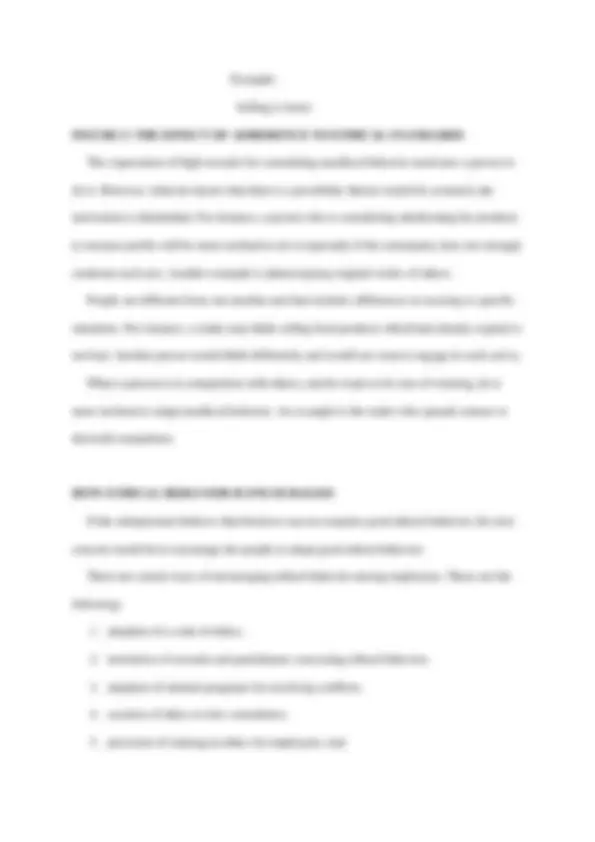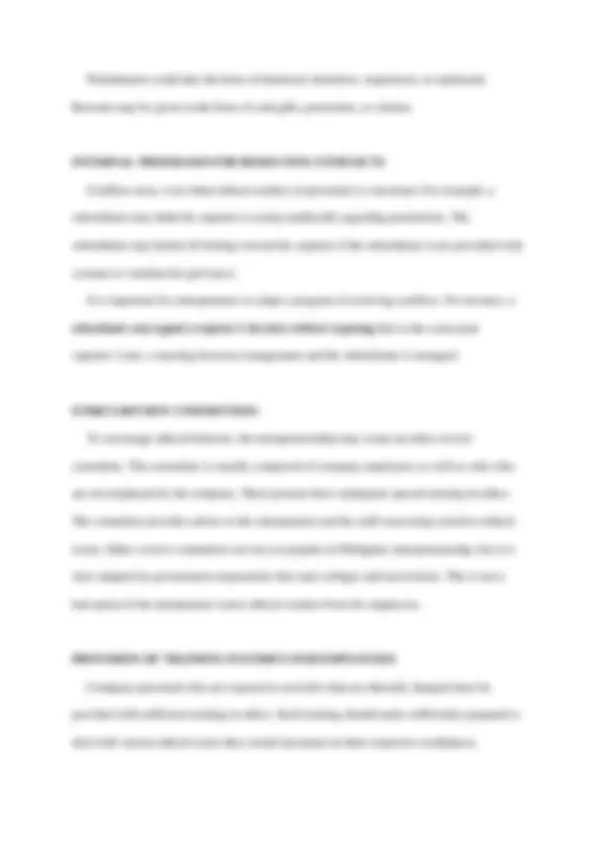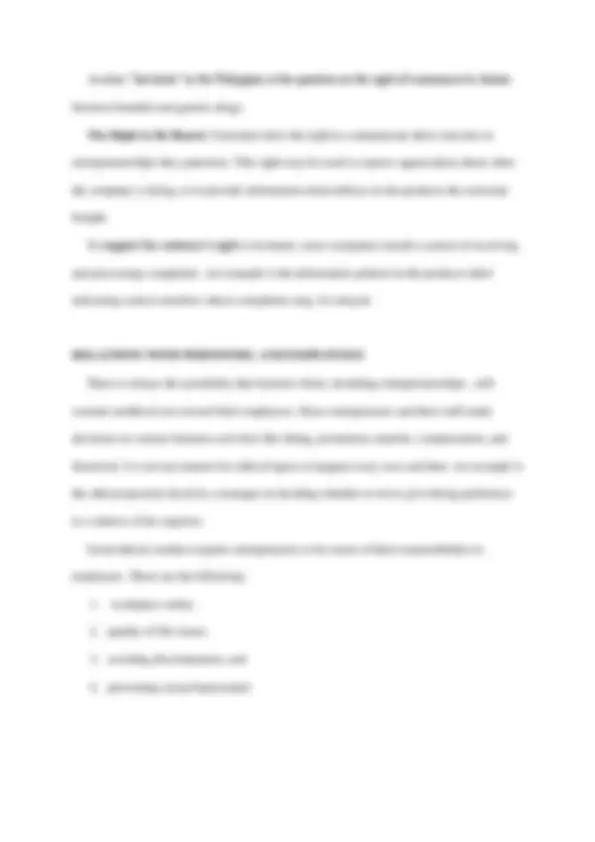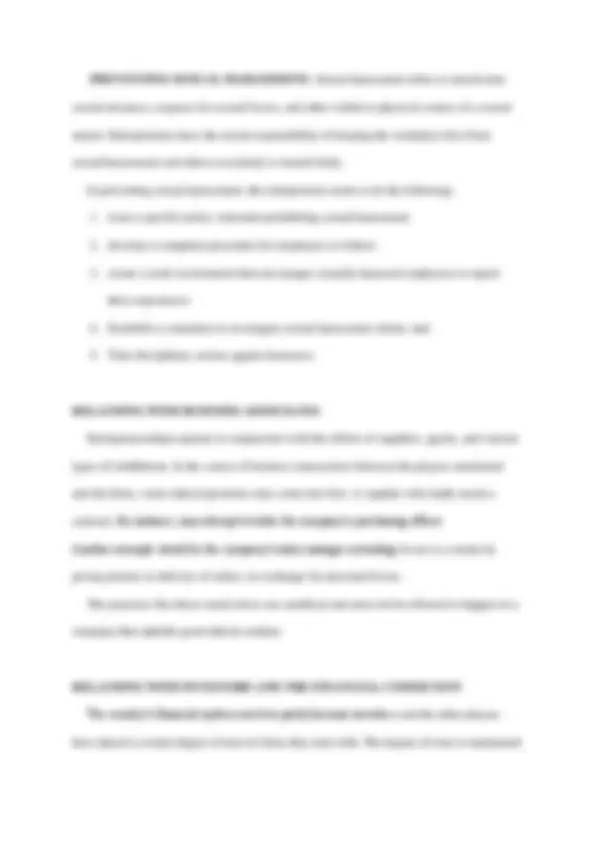








Study with the several resources on Docsity

Earn points by helping other students or get them with a premium plan


Prepare for your exams
Study with the several resources on Docsity

Earn points to download
Earn points by helping other students or get them with a premium plan
Community
Ask the community for help and clear up your study doubts
Discover the best universities in your country according to Docsity users
Free resources
Download our free guides on studying techniques, anxiety management strategies, and thesis advice from Docsity tutors
Ethics is the study of moral obligation involving the distinction between right and wrong. As a consequence, the study of ethics paved the way for the adaption of the general rules of conduct in society.
Typology: Lecture notes
1 / 11

This page cannot be seen from the preview
Don't miss anything!








On special offer
Every now and then, newspapers file reports on corruption, deception, and illegality committed by various personalities including entrepreneurs. A very common topic of conversation is the involvement of contractors and suppliers in anomalous transactions with government personnel. There are indications that the practice has a tendency to become more intense and destructive. This should not be tolerated for it will ruin the society that provides everyone with a sense of security in an environment of peaceful coexistence. Yet, the said practice is only one of the many that are committed in the quest for improving one’s lot, financially or otherwise. The concern for society’s survival brought into the fore the to adapt ethical standards and socially responsible actions. The role of the entrepreneur in propagating ethics and social responsibility in business cannot be overemphasized. WHAT IS BUSINESS ETHICS? Ethics is the study of moral obligation involving the distinction between right and wrong. As a consequence, the study of ethics paved the way for the adaption of the general rules of conduct in society. The rules about how entrepreneurs out to behave are referred to as business ethics. The ethical behavior required of entrepreneurs is determined by the following:
Punishments could take the form of dismissal, demotion, suspension, or reprimand. Rewards may be given in the form of cash gifts, promotion, or citation. INTERNAL PROGRAMS FOR RESOLVING CONFLICTS Conflicts arise, even when ethical conduct of personnel is concerned. For example, a subordinate may think his superior is acting unethically regarding promotions. The subordinate may harbor ill feelings toward his superior if the subordinate is not provided with a means to ventilate his grievance. It is important for entrepreneurs to adapt a program of resolving conflicts. For instance, a subordinate may appeal a superior’s decision without exposing him to the concerned superior. Later, a meeting between management and the subordinate is arranged. ETHICS REVIEW COMMITTEES To encourage ethical behavior, the entrepreneurship may create an ethics review committee. The committee is usually composed of company employees as well as soke who are not employed by the company. These persons have undergone special training in ethics. The committee provides advice to the entrepreneur and his staff concerning sensitive ethical issues. Ethics review committees are not yet popular in Philippine entrepreneurship, but it is slow adapted by government corporations like state colleges and universities. This is not a bad option if the entrepreneur wants ethical conduct from his employees. PROVISION OF TRAINING IN ETHICS FOR EMPLOYEES Company personnel who are exposed to activities that are ethically charged must be provided with sufficient training in ethics. Such training should make sufficiently prepared to deal with various ethical issues they would encounter in their respective workplaces.
Entrepreneurs are expected by society to treat their customers fairly and not to act in ways that will be harmful to them. Entrepreneurs should provide support for consumer rights which are as follows:
Another “hot issue” in the Philippine is the question on the right of consumers to choose between branded and generic drugs. The Right to Be Heard. Customers have the right to communicate their concerns to entrepreneurships they patronize. This right may be used to express appreciation about what the company is doing, or to provide information about defects in the products the customer bought. To support the customer’s right to be heard, some companies install a system of receiving and processing complaints. An example is the information printed on the products label indicating contact numbers where complaints may, be relayed. RELATIONS WITH PERSONNEL AND EMPLOYEES There is always the possibility that business firms, including entrepreneurships , will commit unethical acts toward their employees. Since entrepreneurs and their staff make decisions on various business activities like hiring, promotion, transfer, compensation, and dismissal, it is not uncommon for ethical lapses to happen every now and then. An example is the ethical question faced by a manager in deciding whether or not to give hiring preference to a relative of his superior. Good ethical conduct requires entrepreneurs to be aware of their responsibilities to employees. These are the following:
PREVENTING SEXUAL HARASSMENT. Sexual harassment refers to unwelcome sexual advances, requests for sexual favors, and other verbal or physical contact of a sexual nature. Entrepreneurs have the moral responsibility of keeping the workplace free from sexual harassment and where everybody is treated fairly. In preventing sexual harassment, the entrepreneur needs to do the following:
at a high level if the investors and the financial community feel that business firms practice good business ethics, especially thinks that their investments are well protected. If that is so, the desired level of investment is maintained. Trust and confidence, however, are eroded by wrongdoings of some firms. The investment scams perpetrated by some scheming persons do not provide good examples of ethical firms. It is to the best interest of companies including entrepreneurships to continue to be blessed with a stable financial system. This will only be possible if companies behave ethically. Misrepresentation concerning the financial health of firms, land swindles, embezzlement and misleading reports about non-existent assets are only some of the unethical and illegal practices that undermine our country’s financial stability.